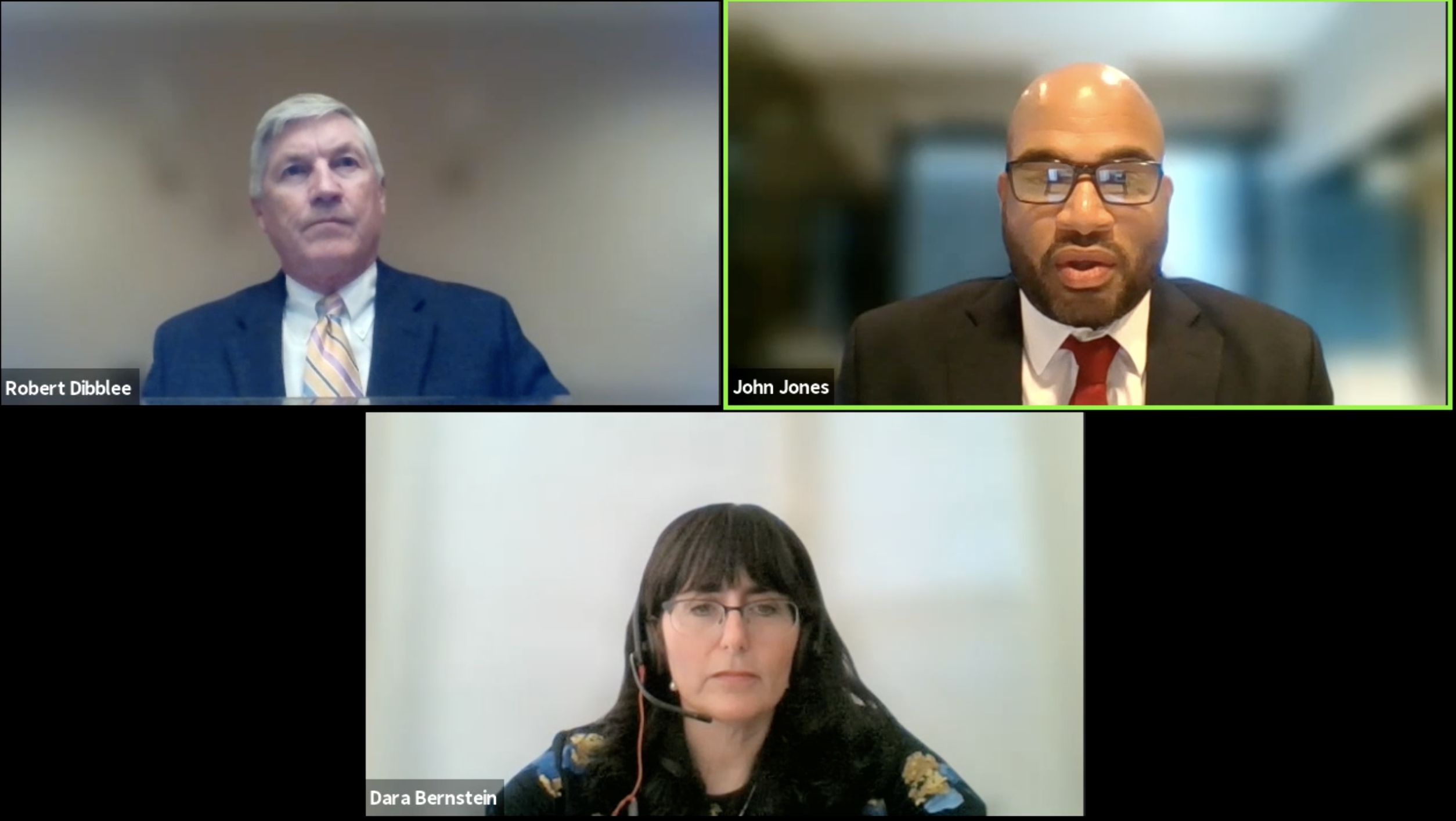Democrats are approaching the 2022 mid-term elections with a subdued attitude, while Republicans are “giddy” as they look forward to the mid-terms, according to Nareit Policy & Politics staff members who participated in a Washington Update Spotlight Session at Nareit’s REITworld: 2021 Annual Conference.
“Outside of COVID relief legislation, many Democrats felt there weren’t any major recent legislative accomplishments to run on” in the recent Virginia gubernatorial election, said Nareit Senior Vice President of Government Relations John Jones. The Republican candidate, Glenn Youngkin, defeated the Democratic candidate, Terry McAuliffe, in the closely watched contest, widely seen as a bellwether for the mid-term elections. Jones noted the $1.2 trillion federal infrastructure bill was held up for three months by wrangling in a divided Democratic caucus, while the content and cost of the Build Back Better Act, which he called “a massive transformational bill,” is still being negotiated, leaving Virginia Democrats with little to showcase in the way of recent major legislative achievements signed into law.
“The public doesn’t like to see the sausage-making,” Jones said, referring to the ongoing negotiations over the Build Back Better Act. “They want to see results.”
Among its many possible provisions, the Build Back Better Act would include measures to address climate change, said Nareit Senior Vice President and Tax Counsel Dara Bernstein. A possible provision under discussion, she said, is a package of tax credits for sustainability investments. Candidates for inclusion in the package are capital investments to install electric vehicle charging stations and for green energy property improvements like solar energy storage, geothermal systems and wind-powered energy generation.
Meanwhile, Republicans believe “they have the wind at their back” sailing into the 2022 mid-terms, said Nareit Senior Vice President of Government Relations Robert Dibblee.
Dibblee said Republicans had targeted 13 Democratic House seats for turnovers, and their confidence in winning back the House was based on three primary factors: aggressive redistricting, which has strengthened Republican positions in several states; strong fundraising by the National Republican Congressional Committee, which, so far, has raised $105 million more than it did in the 2018 mid-terms; and a favorable political environment.
In explaining Republicans’ view that the political environment has shifted in their favor, Dibblee pointed to the results of the Virginia gubernatorial election.
“They were encouraged by Youngkin’s ability to keep the Republican base energized while also gaining votes in the suburbs,” which had been a Democratic bastion in the 2020 election, he said.
Dibblee said Republicans see Youngkin’s messaging strategy in the race as a guide that can deliver votes for Republicans in 2022: tying rising inflation that voters feel in their pocketbooks to excessive government spending, and emphasizing local issues.
As far as the Senate, Dibblee indicated that the Youngkin victory and the current political environment has Republicans expressing optimism that a net gain of one seat in next year’s senate elections will break the current 50-50 tie and restore Sen. Mitch McConnell (R-KY) as the Senate Majority Leader in 2023. However, he indicated that this will depend on the caliber of Republican candidates in several states where Republican incumbents are retiring.
